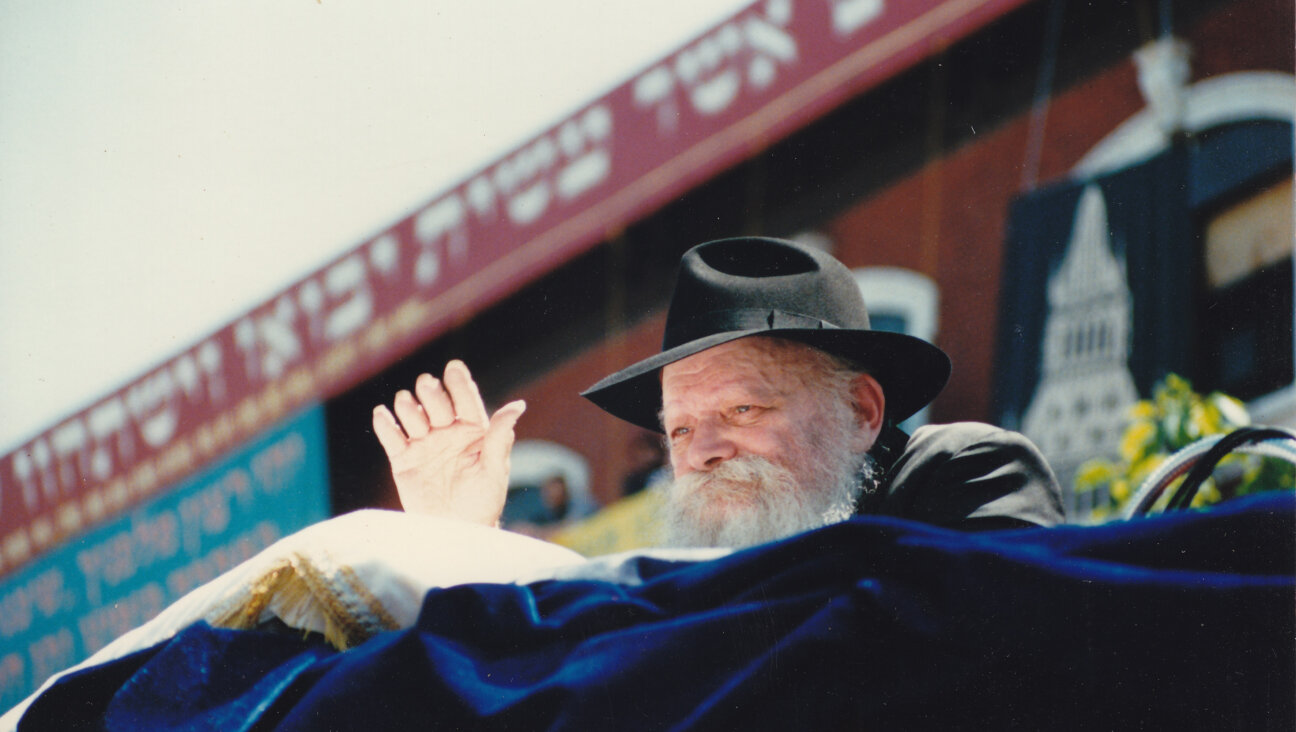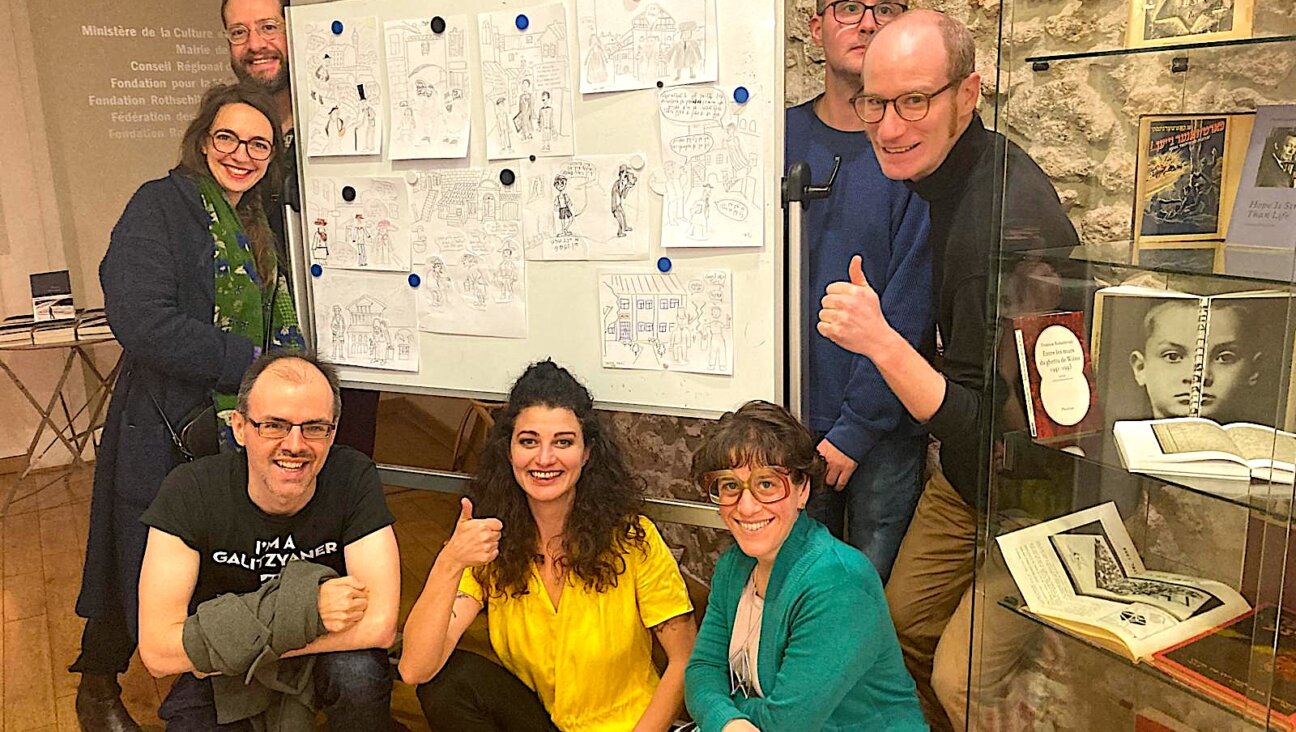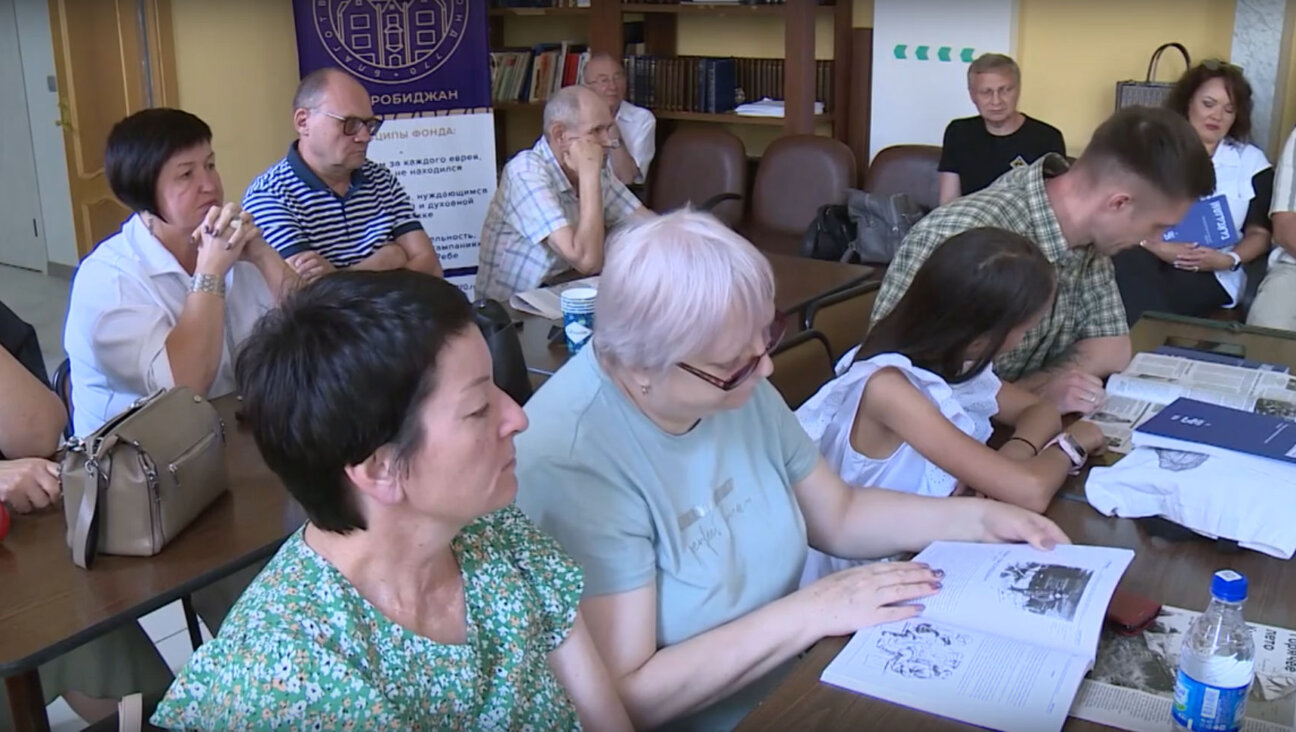די צאָל באַטייליקטע אין „אַרבעטער־רינג“־קלאַסן שטאַרק געוואַקסן בשעת דער עפּידעמיעEnrollment in Workers Circle Yiddish classes continues to grow during pandemic
די צאָל סטודענטן איז געשטיגן 65% אין פֿאַרגלײַך מיט פֿאַראַיאָרן.

Image by Workers Circle
מע הערט אויף שריט און טריט, אַז די צאָל מענטשן וואָס פֿאַרשרײַבן זיך אויף קלאַסן און קולטורעלע פּראָגראַמען אָנלײַן האָט זיך שטאַרק צעוואַקסן בשעת דעם קאָראָנאַ־ווירוס־קריזיס.
אומפֿאָרמעל האָט מען די זעלביקע אויך געהערט וועגן דעם איצטיקן זמן ייִדיש־קלאַסן בײַם אַרבעטער־רינג, וואָס האָט זיך אָנגעהויבן אין יוני.
לעצטנס האָט די אָרגאַניזאַציע אַרויסגעלאָזט אַ פֿאָרמעלע סטאַטיסטיק, וואָס ווײַזט שוואַרץ אויף ווײַס דעם וווּקס פֿון סטודענטן. דעם פֿאַרגאַנגענעם זומער האָבן זיך געלערנט אין די קורסן 185 סטודענטן. הײַיאָר לערנען זיך 305, אַ פֿאַרהעכערונג פֿון 65%. די סטודענטן שטאַמען פֿון אַלע פֿינף ניו־יאָרקער באָראָס, 32 שטאַטן, אַרײַנגערעכנט אַלאַבאַמע, טענעסי, מיסיסיפּי און אַלאַסקע, ווי אויך 19 לענדער, אַרײַנגערעכנט ישׂראל, אַרגענטינע, בראַזיל, יאַפּאַן, ליטע, פּוילן און טשילע. פֿאַראַיאָרן האָבן זיך באַטייליקט אין דער פּראָגראַם סטודענטן פֿון בלויז 10 לענדער און 24 שטאַטן.
ען טאָבאַק, די הויפּט־פֿאַרוואַלטערין פֿונעם אַרבעטער־רינג האָט איבערגעגעבן, אַז די צעשטערונג פֿון די נאָרמאַלע געזעלשאַפֿטלעכע פֿאַרבינדונגען בשעת דער עפּידעמיע און די איזאָלאַציע וואָס מענטשן פֿילן בשעת זיי זענען פֿאַרשפּאַרט בײַ זיך אין דער היים האָט דערפֿירט צו דעם, אַז נאָך מער מענטשן ווי געוויינטלעך ווילן זיך פֿאַרטיפֿן אין זייערע וואָרצלען.
איינע פֿון די סטודענטקעס איז דזשודי סאַלאָמאָן, וועמענס מאַמע איז געבוירן געוואָרן אין פּוילן. כאָטש זי און אירע דרײַ שוועסטערקינדער האָבן אַלע ניט געקענט קיין ייִדיש פֿון דער היים, האָבן זייערע עלטערן עס יאָ גערעדט. איצט האָבן אַלע פֿיר שוועסטערקינדער, צווישן 69 און 79 יאָר אַלט, מיט זייערע מענער און פֿרויען, זיך פֿאַרשריבן אין אַ ייִדיש־קלאַס און פֿאַר יעדן קלאַס טרעפֿן זיי זיך אויף זום כּדי זיך צוצוגרייטן צו דער לעקציע.
A message from our CEO & publisher Rachel Fishman Feddersen

I hope you appreciated this article. Before you go, I’d like to ask you to please support the Forward’s award-winning, nonprofit journalism during this critical time.
At a time when other newsrooms are closing or cutting back, the Forward has removed its paywall and invested additional resources to report on the ground from Israel and around the U.S. on the impact of the war, rising antisemitism and polarized discourse.
Readers like you make it all possible. Support our work by becoming a Forward Member and connect with our journalism and your community.
— Rachel Fishman Feddersen, Publisher and CEO





















